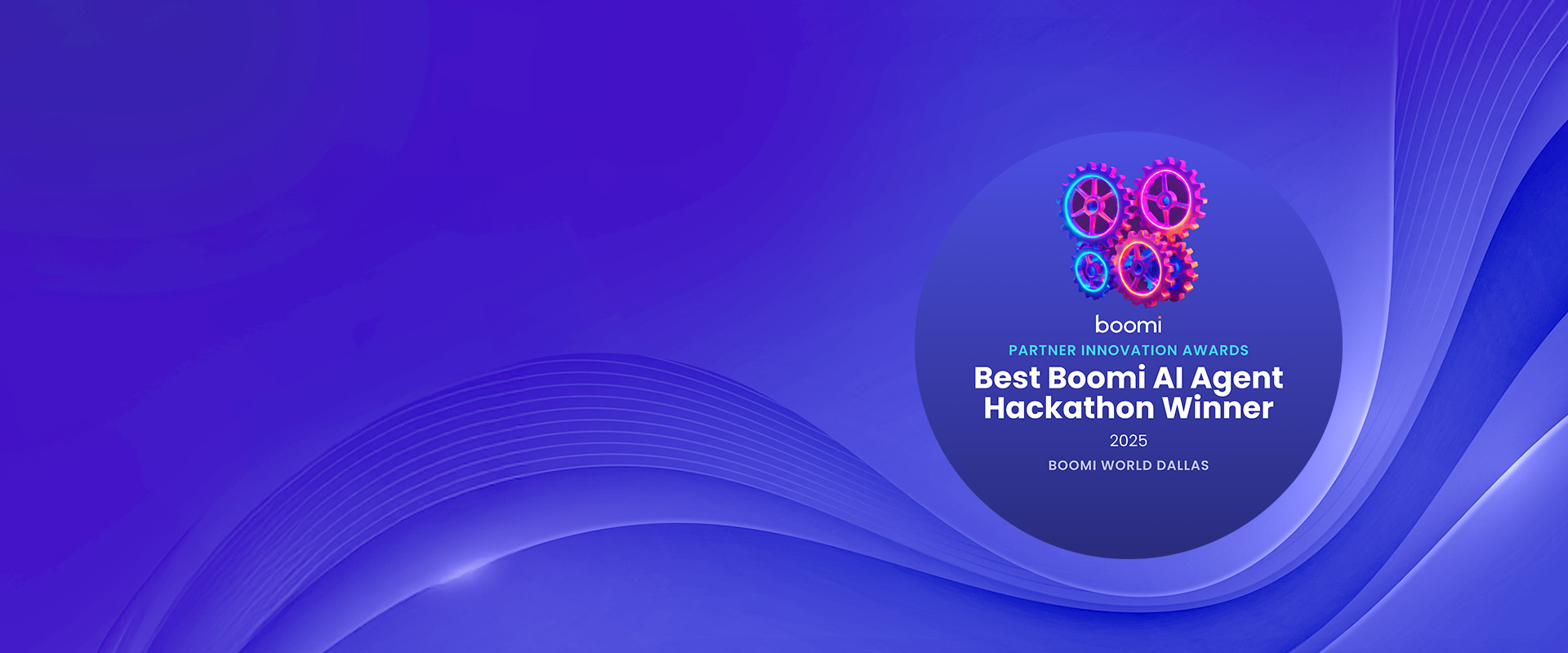The 340B Drug Pricing Program remains a cornerstone for hospitals and covered entities looking to expand access to affordable medications for underserved communities. While the program offers immense value, managing it effectively—especially across a network of contract pharmacies and PBMs, requires more than just good intentions. It demands practical, well-integrated technology solutions that can bridge communication gaps, automate tasks, and ensure compliance.
That’s where integration platforms, or Boomi middleware, come in. These tools allow hospitals, pharmacies, and PBMs to work off a shared digital foundation, streamlining operations, cutting down on manual work, and providing greater visibility into 340B compliance. In other words, they help busy healthcare teams stay focused on patients, not paperwork.
Healthcare organizations looking to scale their 340B operations, improve responsiveness, and reduce maintenance costs need to consider transitioning to a modern Integration platform. This shift isn’t just an IT upgrade—it’s a strategic move to make the entire 340B program more resilient and future-ready.
Boomi Middleware: A Proven Solution for 340B Integration
Boomi cloud-based iPaaS (Integration Platform as a Service) has gained traction in the healthcare integration space. As a leading middleware integration platform, Boomi helps organizations connect their existing systems—EHRs, pharmacy software, and billing platforms, without heavy lifting from IT teams. It’s flexible, scalable, and supports HL7 and FHIR standards, which are essential for data integration in healthcare. Boomi is also HIPAA compliant, ensuring patient information stays secure throughout every integration touchpoint.
Best Practices for Boomi Middleware Integration in 340B Program Management
1. Establish Clear Data Standards and Transformation Rules
Data inconsistencies are a common issue. Define and enforce standards across systems:
- Use consistent formats and coding conventions for medications, encounters, and claims.
- Ensure middleware can translate protocols like HL7, FHIR, X12, and NCPDP.
- Validate data regularly to avoid delays or audit risks caused by discrepancies.
2. Enable Real-Time Data Exchange Where Possible
Speed matters in compliance and operations. Best practices include:
- Implement API-driven communication between hospital systems and external partners.
- Set up secure batch processing when real-time isn't necessary.
- Encrypt all data to comply with HIPAA and maintain patient trust.
3. Automate Patient Eligibility Checks
Manual processes create bottlenecks. Automating eligibility workflows ensures:
- Prescriptions are automatically linked to eligible encounters.
- Exceptions and red flags are flagged early and addressed proactively.
4. Build Robust Compliance and Reporting Capabilities
Staying ready for an audit means:
- Logging every 340B transaction in detail.
- Generating real-time reports for internal reviews and HRSA compliance.
- Ensure your inventory tracking is up to date and accurate.
5. Collaborate Closely with Third-Party Administrators (TPAs)
Your TPAs are vital to 340 B's success. Strengthen these relationships by:
- Using middleware to facilitate consistent data exchange.
- Aligning claims processes and schedules to avoid mismatches.
- Reducing manual work through system integrations and shared dashboards.
Typical Business Challenges When Implementing 340B Integration Solutions
While middleware platforms offer promising capabilities, healthcare organizations often encounter several business-level hurdles during implementation:
- Lack of Unified Data Strategy – Many hospitals struggle with fragmented data across departments and vendors, making it difficult to align and integrate cleanly.
- Interdepartmental Misalignment – 340B program success depends on coordination between IT, pharmacy, finance, compliance, and clinical teams. Misaligned goals and priorities can delay execution.
- Vendor and TPA Limitations – Not all pharmacy partners or TPAs are technologically ready to support advanced integration. This often requires custom workarounds or contract negotiations.
- Inconsistent Policy Enforcement – Without clear internal policies for data governance, user access, and audit protocols, even well-integrated systems can falter in compliance.
- Underestimation of Change Management – Staff adoption is critical, yet organizations often overlook training and workflow redesign, resulting in resistance or poor utilization.
Addressing these challenges early, with cross-functional planning, strong leadership buy-in, and realistic timelines—helps ensure a smoother path to success.
AI and Automation Opportunities for 340B Programs
AI and automation technologies are emerging as valuable tools to strengthen 340B program operations. Boomi AI Agents can:
- Improve compliance by automatically flagging duplicate discounts or eligibility mismatches.
- Streamline workflows using robotic process automation for tasks like claims reconciliation.
- Enhance decision-making through predictive analytics that forecast drug demand and optimize inventory.
- Reduce fraud risk by detecting unusual patterns or transactions in real-time.
Conclusion
Integrating systems under the 340B program isn’t just about ticking boxes for compliance. It’s about building a connected, responsive infrastructure that enables hospitals and their partners to operate smarter, faster, and with greater accountability.
Middleware platforms like Boomi, combined with AI and automation, are helping healthcare organizations simplify the complexity behind the scenes—so they can focus on delivering accessible, high-quality care on the front. The journey requires thoughtful planning and practical execution, but the long-term payoff is worth it: a 340B program that runs efficiently, scales with demand, and delivers measurable impact to the communities it was designed to serve.













